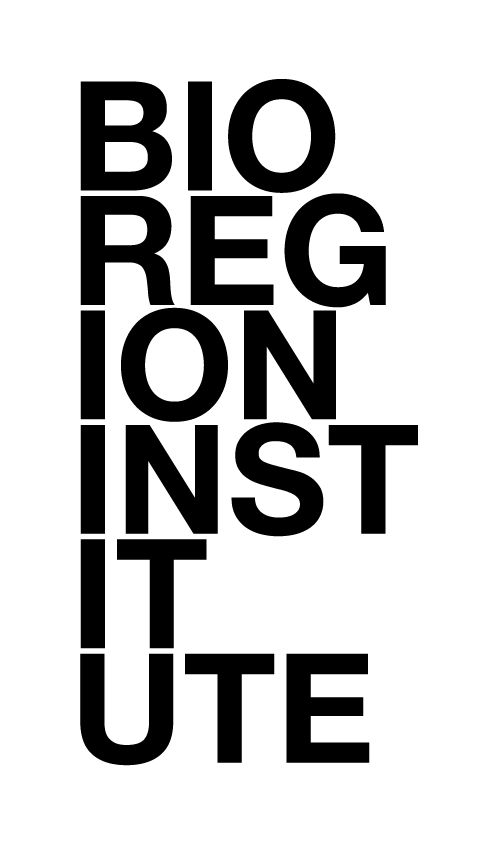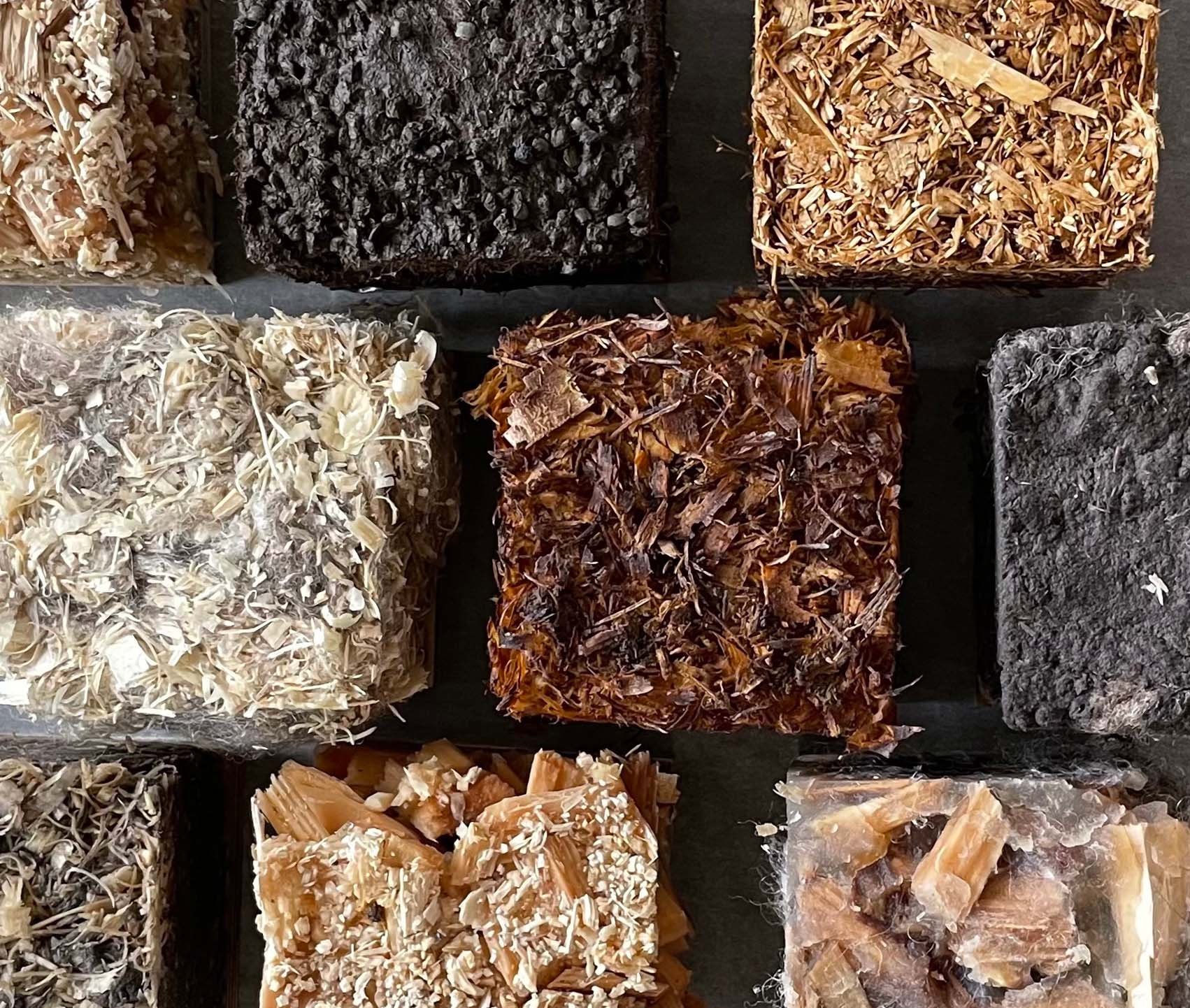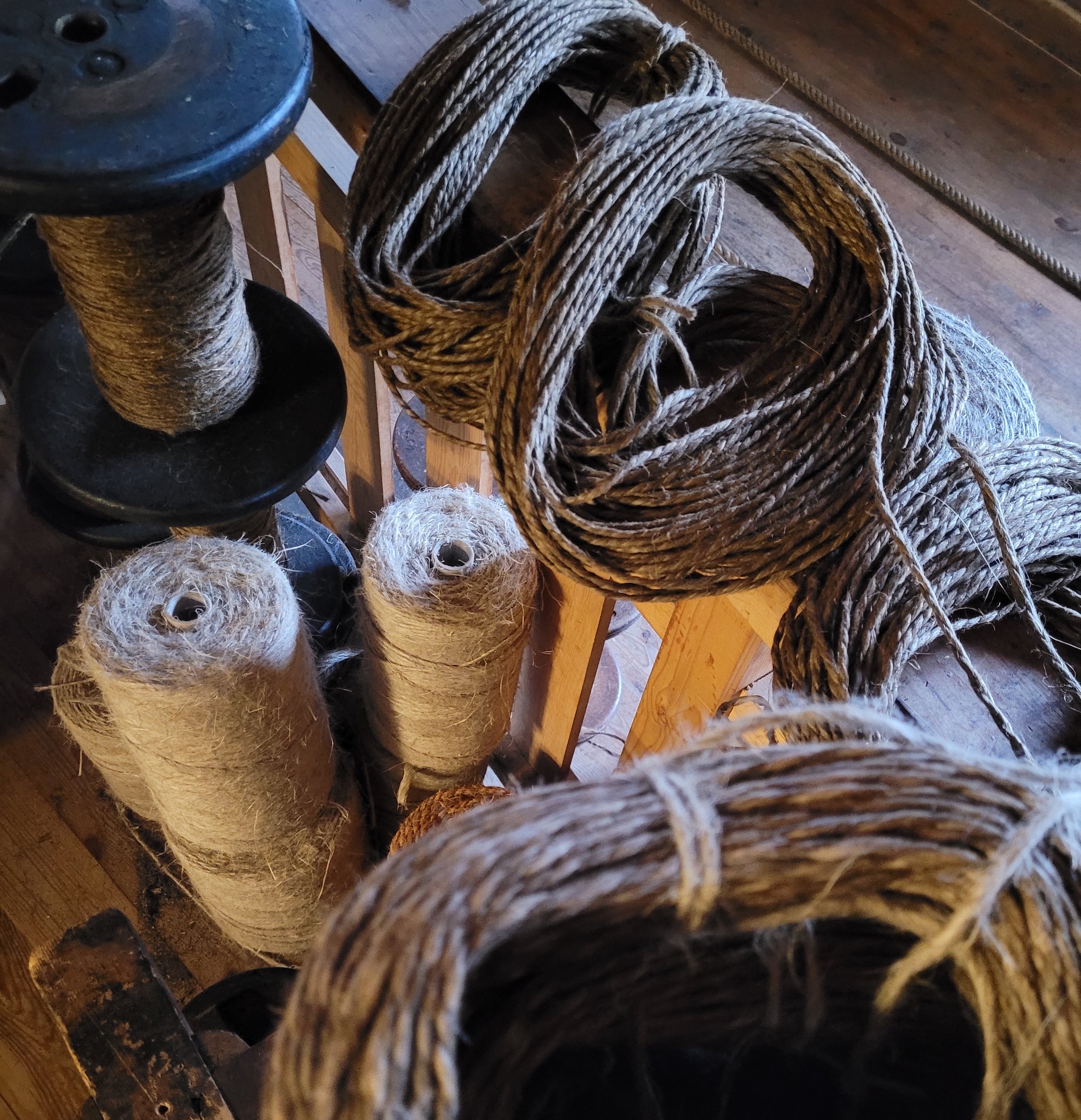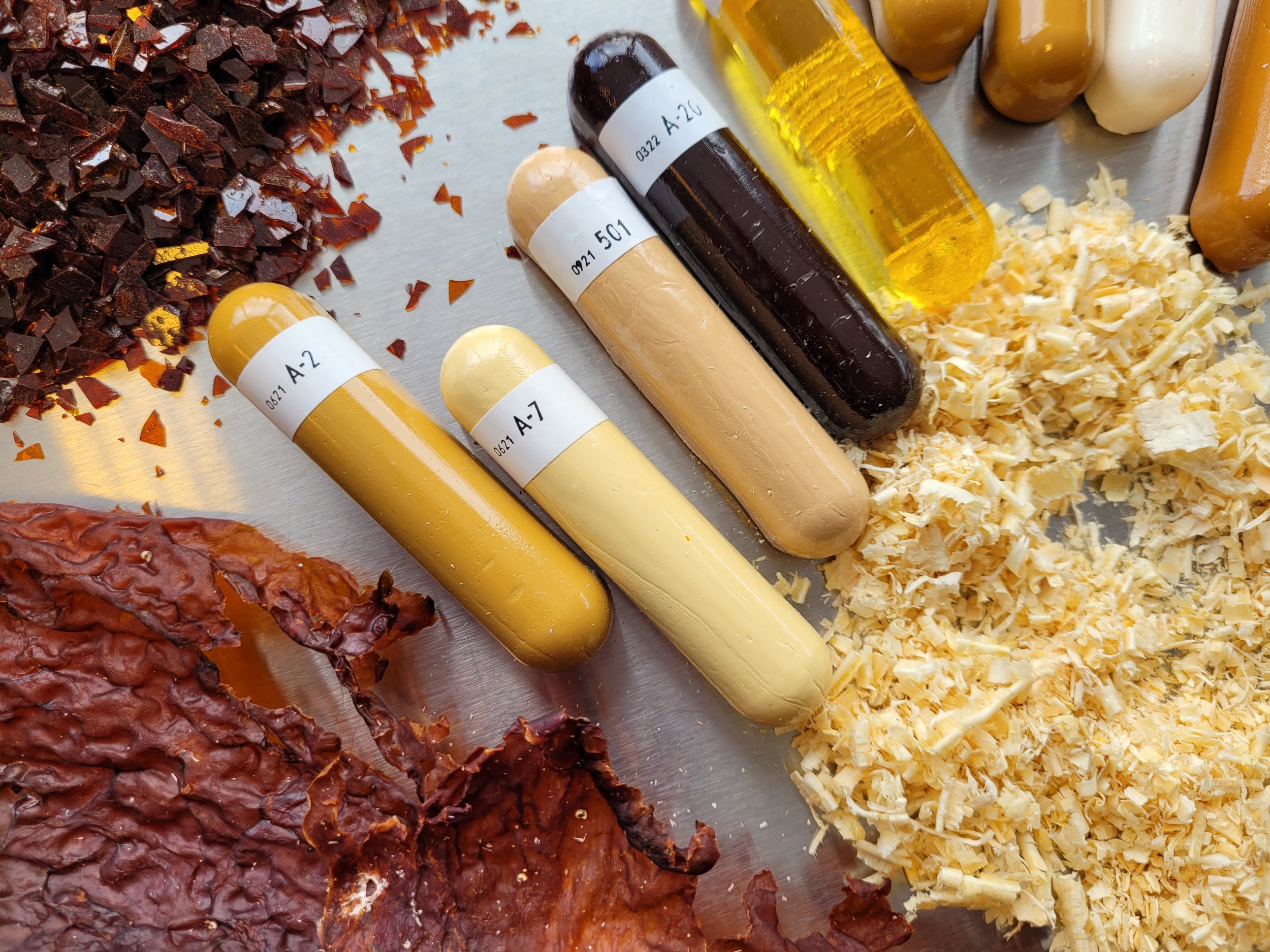We are a multidisciplinary research and design team working across sectors, industries, and territories: here is our bespoke collection of proofs of concept delivered to address our industrial and societal paradigm shift from fossil based to fossil free materials.
Within the project ByHav, led by NIVA, Bioregion Institute maps opportunities for promoting and securing biological diversity through nature-positive solutions for our coastal ecosystem.
Norgesmøllene is one of Norways most important flour mills and care deeply about minimizing waste in their value chain. As a member, they have commissioned Bioregion institute to explore how low value biowaste can be used in high value materials and products.
Woolly Silent is an acoustic wall tile made of sorted low-value wool that has unique natural properties for use in interiors. The decorative wall tiles are 100% natural and utilize the wool's sound-absorbing, insulating and self-cleaning qualities.
Lerøy Ocean Forest vision is to achieve more efficient recycling of the unexploited resources in the environments surrounding our fish farms, absorb CO2 and create biomass from species lower down the food chain, thereby reducing the environmental footprint of aquaculture.
We are developing the next generation of surfacing for playgrounds, a fossil-free alternative in symbiosis with nature. Present-day playgrounds surfaces are made of synthetic rubber, which release harmful microplastics into our water systems and food chain.
Woolly Pot has the goal of replacing the fossil based plastic pots in Norwegian horticulture and agriculture with compostable pots made of downgraded wool.
At Bioregion Institute, we believe that (alive) mycelium-based building materials are a promising alternative to traditional building materials. They are eco-friendly, lightweight, durable, self-healing and have excellent insulation properties.
PROLAND focuses on value creation in agricultural and industrial practices by addressing and investigating the sources of plastic pollution in agricultural soils in Norway.
Bio Deep Map is an original exploratory method tool that focuses on the potential of bioresources in material-based art and is developed in a collaborative program with artistic research-based activities.
With Kaihagen, we want to show the variety of edible plants that can grow in our climate. We want to inspire people to grow their own food, which reduces one's carbon footprint.
The project focus on establishing thematic working groups that will work with knowledge sharing, measures and sub-projects that remove and prevent the plastic to come out in nature and measures its replacement.
Shift Plastic primary objective is to create sustainable circular value chains for handling plastics in the fisheries and aquaculture sector.
To make aquaculture more sustainable and ready for stricter emission requirements, sludge handling solutions need to be increasingly adopted by the industry.
In 2020-21 Bioregion Institute co-authored the very first circular report for the city of Bergen in Norway, together with the Bergen office of PwC and Bergen municipality.
How can we make the best possible use of the resources in Western Norway and use these to create circular value chains that are both sustainable and profitable – which can also create solutions that replace our plastic consumption?
Get in touch.
You have a biodesign need, or wish to book your Proof of concept? We are here to help you. Just take contact and we will come back to you promptly.

















